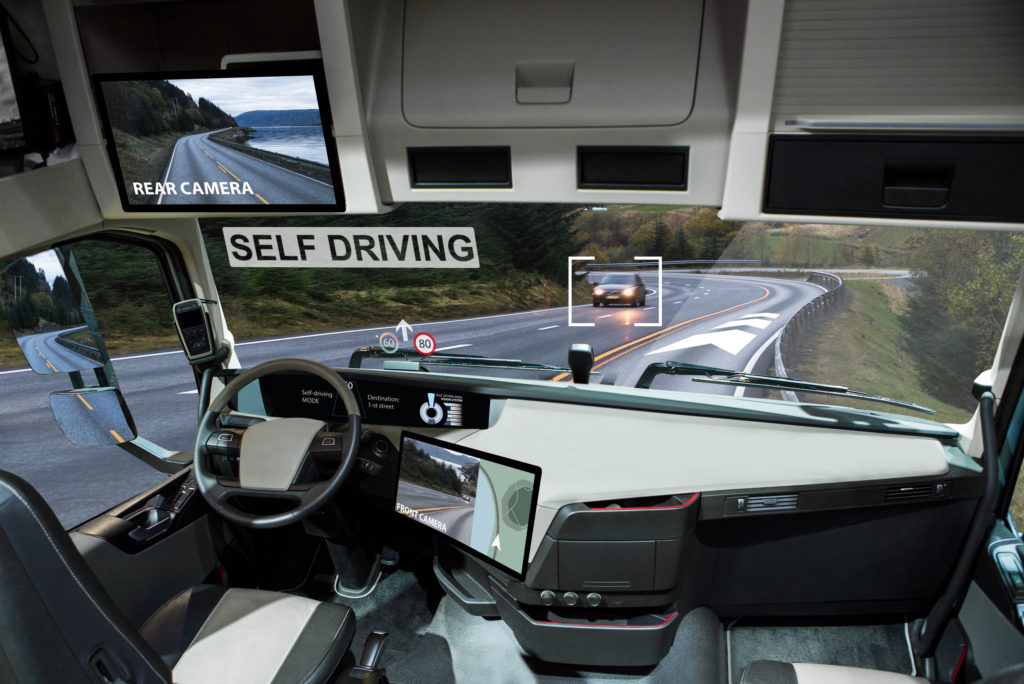
VIRGINIA – In a partnership with Torc Robotics, Daimler Trucks will now be testing highly automated, heavy-duty trucks across highways in Virginia.
According to a September 9th press release, the two companies said they are currently actively developing and testing these trucks with SAE Level 4 intent technology on public routes in southwest Virginia, where Torc Robotics headquarters are located.
After months of testing and safety validation on closed-loop tracks, these public test runs of self-driving trucks will require an overseeing engineer and a highly-trained safety driver–who must hold commercial driver’s licenses and be specially trained in both vehicle dynamics and automated systems.
“We understand the needs of the industry,” Martin Daum, Member of the Board of Management of Daimler AG, said in the release. “Bringing Level 4 trucks to the public roads is a major step toward our goal to deliver reliable and safe trucks for the benefits of our customers, our economy and society.”
This announcement comes just months after Daimler agreed to acquire a majority stake in Torc–deeming Torc Robotics an official part of the new Autonomous Technology Group of Daimler Trucks, and allowing for these innovations.
Now, the truck manufacturer is consolidating its activities regarding automated driving globally–including within Torc’s locations in Blacksburg, Virginia as well as in Portland, Oregon and Stuttgart, Germany.
The Level 4 automated driving capabilities will allow trucks to drive themselves without needing a driver to monitor or engage–in certain conditions.
Torc’s system for automated driving, called ‘Asimov,’ has been tested throughout urban and long-distance routes in all weather conditions–including, rain, snow and fog.
“Our whole team is thrilled to be working alongside our Daimler colleagues as we pursue the commercialization of Level 4 trucks to bring this technology to the market,” said Torc Robotics CEO Michael Fleming. “We strongly believe it can save lives.”
The goal for these automated trucks is to eventually be able to haul freight on open highways between hubs.
The Level 4 test trucks are Freightliner Cascadia models complete with Torc’s self-driving capabilities, lidar sensors, cameras, and radar. During the tests, they will also pull weighted trailers to simulate carrying a load.
Daimler Trucks North America (DTNA) plans to evolve automated driving technology and vehicle integration for heavy-duty trucks. It is currently working on a truck chassis for automated driving, “particularly the redundancy of systems needed to provide reliability and safety,” the release stated.
DTNA will also be building an infrastructure to support Level 4 testing–which will include a control center and logistic hubs, located along high-density freight corridors where customers can operate near interstates and highways.
While Daimler continues with Level 4 automated driving, it will continue the process of integrating Level 2 technology, which aims to automate both lateral and longitudinal control while still requiring driver engagement.
DTNA will also continue offering active steering capabilities through its Detroit Assurance safety tech and Active Lane Assist by including automatic lane-centering and lane-departure protection features. This safety tech is projected to become more widely available early next year.
“As we pair Daimler’s expertise in building safe and reliable trucks with Torc’s genius in engineering Level 4 vehicles, we have no doubt we will do great things in the future,” said Daimler president and CEO Roger Nielsen. “We look forward to writing history together. The U.S. highways are the perfect place to develop automated technology.”
With the number of trucks on the road consistently growing but fewer people entering the profession, truck-driving continues to be stressful and often monotonous. “There is a long-term need to rethink,” Daimler says on its website. “Firstly, in order to increase the safety of all road users through the use of intelligent technologies. Secondly, in order to take pressure off the drivers and make their job more attractive by assigning them other tasks. Last but not least, the total cost of ownership (TCO) plays an important role in the transport industry.” Daimler claims the high degree of automation further lowers the TCO.
These public road tests are a significant step in Daimler Trucks’ 570 million dollar investment to bring highly automated trucks to global roads within a decade. Daimler says in this effort, it will be following its three most important beliefs: that “safety has absolute priority; everything must be 100% reliable,” that it must continue to develop “products together with its customers,” and that “a clear and legal regulatory framework for operation and liability is needed.”
Reader Interactions